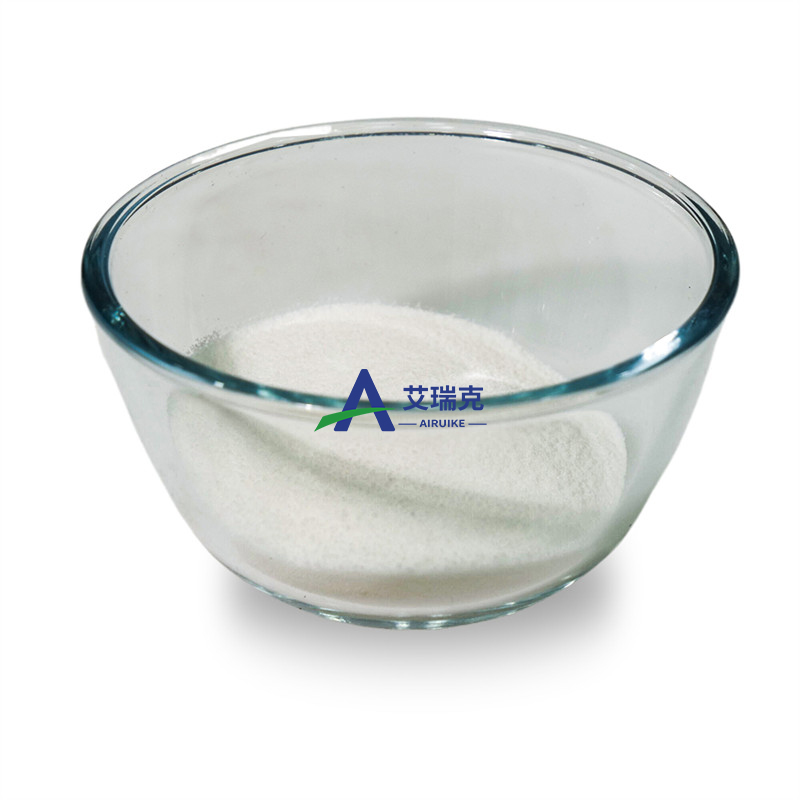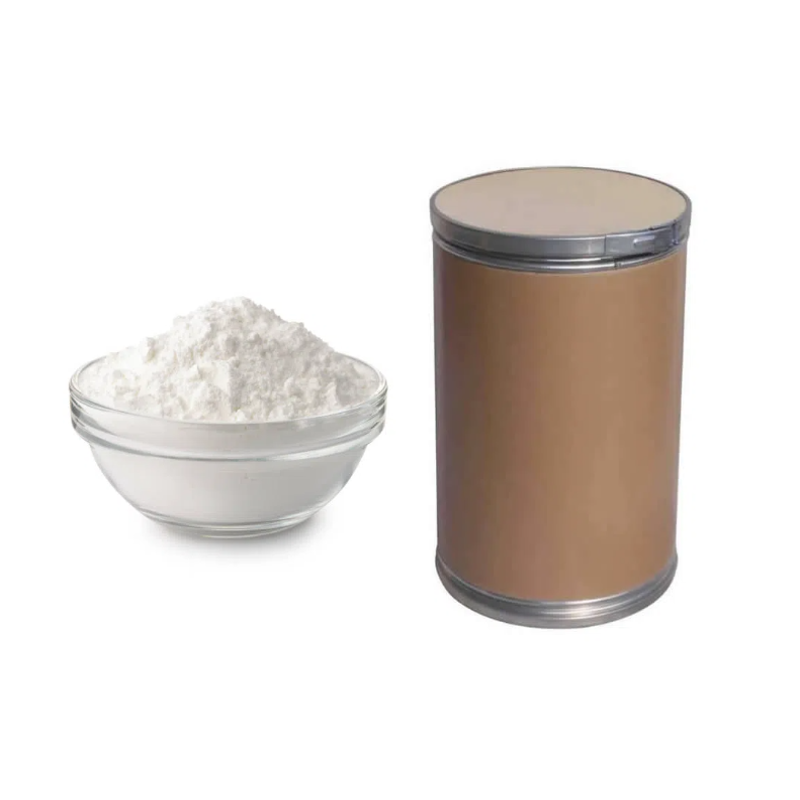-
Categories
-
Pharmaceutical Intermediates
-
Active Pharmaceutical Ingredients
-
Food Additives
- Industrial Coatings
- Agrochemicals
- Dyes and Pigments
- Surfactant
- Flavors and Fragrances
- Chemical Reagents
- Catalyst and Auxiliary
- Natural Products
- Inorganic Chemistry
-
Organic Chemistry
-
Biochemical Engineering
- Analytical Chemistry
-
Cosmetic Ingredient
- Water Treatment Chemical
-
Pharmaceutical Intermediates
Promotion
ECHEMI Mall
Wholesale
Weekly Price
Exhibition
News
-
Trade Service
Introduction Urothelial carcinoma (UC) is one of the common malignant tumors.
Platinum-based chemotherapy has always been the first-line standard treatment for advanced UC
.
In recent years, with the rapid development of immunotherapy, immunotherapy has changed the current status of UC treatment, and its status has become more and more important
.
In the golden autumn of September, the 2021 European Society of Medical Oncology (ESMO 2021) will be held from September 16th to 21st, contributing to a global tumor feast
.
Due to the impact of the new crown epidemic, domestic oncologists were unable to attend the event.
BeiGene specially held the "Jiyu·Hundreds-2021 ESMO GU Highlight" online conference, inviting domestic colleagues to share cutting-edge progress in the field of urinary oncology
.
In this meeting, Professor Shen Yijun from the Cancer Hospital of Fudan University reported on the "2021 ESMO Urothelial Cancer Treatment Progress".
We followed Professor Shen to get a glimpse of the essence of UC treatment
.
Expert profile: Professor Shen Yijun, Deputy Chief Physician, Department of Urology, Fudan University Tumor Hospital, Doctor of Medicine, Master's Tutor, Visiting Scholar, MD Anderson Cancer Center and University of Texas Medical School, Chinese Society of Clinical Oncology (CSCO) Urothelial Cancer Expert Committee Member, Chinese Anti-Cancer Association Urology Member of the Bladder Cancer Group of the Department of Male Reproductive Oncology Professional Committee Member of the Urology Branch of the Shanghai Medical Doctor Association Member of the Supervision Group of the Shanghai Urology Clinical Quality Control Center At the beginning of the report on the treatment mode of advanced UC, Professor Shen reviewed the current treatment mode of advanced UC under the guidance of the 2021 EAU guide Javelin Bladder 100 research
.
Based on the eye-catching data of Javelin Bladder 100, the diagnosis and treatment path for advanced UC has increased the first-line maintenance treatment path for patients with complete remission (CR)/partial remission (PR)/stable disease (SD)
.
For platinum-tolerant patients, after receiving cisplatin/carboplatin for 4-6 cycles, switch to immune checkpoint inhibitors for maintenance therapy; for platinum-tolerant patients, regardless of whether PD-L1 expression is positive or Negative, single-agent immune checkpoint inhibitors are important treatment options
.
Immune Checkpoint Inhibitor Monotherapy IMvigor 210 Study (Cohort 1) is a single-arm, multi-center, phase II clinical trial designed to evaluate atilizumab as the first-line treatment of cisplatin intolerance to locally advanced and metastatic Efficacy of UC patients
.
The 5-year survival data update was announced at the ESMO meeting this year.
The results of a median follow-up of 70.
8 months showed that in patients with first-line cisplatin intolerance, atelizumab has a long-lasting response, good long-term survival, and sustained median remission.
The time (DOR) reached 59.
1 months (44.
2 months-not reached)
.
PD-L1 stratified data showed that the overall survival (OS) of patients with high PD-L1 expression was better than that of patients with low PD-L1 expression, but regardless of PD-L1 expression, the median DOR was more than 4 years
.
In addition, Professor Shen said that the 5-year OS rate of the total population in the study reached 22%.
Compared with the data in the previous data that the 5-year OS of patients with cisplatin intolerance was almost zero, the immune checkpoint inhibitor was a single agent.
Treatment is an important supplement to advanced first-line treatment in addition to platinum-containing chemotherapy
.
The treatment of patients with advanced cisplatin intolerance has entered the era of drug combination The results of the KEYNOTE 052 study reported at this year’s ASCO meeting suggest that the objective response rate (ORR) of immune checkpoint inhibitor monotherapy in patients with cisplatin intolerance is about 24 to 29 %, the long-term survival rate is about 20%, far better than carboplatin chemotherapy
.
It is worth noting that the shortcomings of immune checkpoint inhibitors are their poor early tumor control ability.
For patients who are intolerant to cisplatin, there are many explorations of combined immune targeting strategies
.
The NORSE study compared the efficacy of erdatinib alone or erdatinib combined with cilizumab (CET) in the first-line treatment of patients with advanced UC
.
The study included advanced UC patients with cisplatin intolerance and selective FGFR mutations, and they were randomized 1:1 to the erdatinib group or erdatinib combined with CET group
.
The initial results showed that the ORR of the combined group was significantly better than that of the single-agent group (33% vs 68%).
In this regard, Professor Shen said that for patients who are intolerant to cisplatin, the ORR of immune combined targeted therapy is not used under the premise of chemotherapy.
Close to 70%, the benefits are surprising
.
In addition, the effect of tumor remission and target lesion reduction in this study has no obvious correlation with tumor markers.
Tumor remission was observed in both FGFR mutations and fusion mutations, and patients with low PD-L1 expression also benefited
.
In terms of safety, the safety of the combination therapy group is the same as that of the single drug group, but the drug withdrawal rate of the combination therapy group is higher
.
This study is the first to publish erdatinib combined with immunotherapy in patients with advanced first-line FGFR mutations who are intolerant to cisplatin, and it also suggests that erdatinib and immunotherapy have a potential positive association
.
Professor Shen said that in the current NCCN guidelines, Erdatinib is recommended as a second-line or third-line treatment.
For patients who have failed immunotherapy, Erdatinib is more effective
.
The NORSE study reminds us that the benefits of erdatinib combined with immunotherapy are also extremely significant
.
In general, judging from this year's ESMO conference and previous international conferences, patients with cisplatin intolerance have shown positive effects on immune combined antibody-conjugated drugs (ADC) or targeted therapies
.
In addition to the NORSE study, the ORR of enfortumab vedotin (EV) combined with pembrolizumab reached 73%, which is a significant benefit
.
Therefore, for advanced patients with poor physical conditions who are intolerant to cisplatin, immune combination therapy will be the focus of future research, and it has the possibility of breakthrough
.
New late-line drugs combined with immunization have achieved initial results.
This year’s ESMO conference reported a sEphB4-HAS (B4) combined immunotherapy for patients with advanced UC who had failed platinum-based therapy and had not previously received PD-1/PD-L1 therapy.
Phase II clinical study results
.
EphrinB2 and EphB4 are highly expressed in UC patients.
sEphB4-HAS can target EphrinB2 and can recruit immune cells into the tumor microenvironment
.
The results showed that the overall population ORR reached 37.
1%, 15.
7% of the patients reached CR, and the Ephrin B2-positive patients had an ORR of 52.
2%
.
Professor Shen summarized the main treatment drugs for the late-line treatment of advanced UC, including nivolizumab, pembrolizumab, and local innovative drug tislelizumab.
These immune checkpoint inhibitors are clinically accessible and active Improved the prognosis of Chinese patients with advanced UC
.
At this stage, domestic and foreign guidelines have recommended drugs such as erdatinib or EV for first-line PD-1 or second-line and third-line treatment after chemotherapy failure.
However, these drugs are still out of reach in China.
We look forward to these drugs being available in China as soon as possible.
Approval, benefiting more patients
.
Keep improving: MIBC perioperative immunotherapy and then explore neoadjuvant chemotherapy combined with immunotherapy to explore the AURA study is an immune-based neoadjuvant chemotherapy combination regimen for the treatment of non-metastatic muscle invasive bladder cancer (MIBC) in a multi-center, non-comparison A randomized, randomized, phase II study aimed at exploring the efficacy of avelumab combined with different chemotherapy regimens in the MIBC stage
.
The study introduced the most commonly used chemotherapy regimens in the neoadjuvant phase, such as gemcitabine combined with cisplatin (GC) and dose-dense MVAC (DD-MVAC), which became a highlight
.
The study is divided into cohort 1 (cisplatin tolerance) and cohort 2 (cisplatin intolerance).
The results of cohort 1 were reported at this year's ESMO meeting
.
A total of 56 patients with cisplatin tolerance were included in the study, most of whom were in stage T2
.
The results showed that the pathological response rate (pCR) of the overall population was as high as 61%, of which pT0 patients reached 38%; from the data, the CR rate of the population receiving DD-MVAC combined with avelumab program was better than that of GC combined with avelumab program, which was 64 % And 57%, but there is no statistical difference
.
In terms of safety, the adverse events of the study are controllable and will not affect the subsequent radical cystectomy
.
In addition to the above studies, a number of phase II single-arm studies for patients with cisplatin tolerance indicate that the pathological downgrading rate of neoadjuvant cisplatin chemotherapy combined with immunotherapy is higher than that of immunotherapy alone, reaching 56-69%
.
In the VESPER study, the efficacy of different chemotherapy regimens was compared, that is, the DD-MVAC regimen vs.
the GC regimen.
The results show that the DD-MVAC regimen has a better effect
.
Professor Shen said that the cisplatin-based chemotherapy combined with immunotherapy has a considerable effect and is the focus of research at this stage
.
In addition to the combination of chemotherapy and immunotherapy, the exploration of immunotherapy with different dose combinations was also reported in this year's ESMO meeting
.
The NABUCCO study compared the efficacy of different dose combinations of nivolumab (Nivo) and ipilimumab (IPI) in the treatment of locally advanced UC
.
The study is divided into cohort 1 and cohort 2.
The research design is shown in the figure below
.
In cohort 1, the pCR of the dual-immune regimen was 46%, the pCR+pathological downstage rate was 58%, and the 30-month OS rate was >90%
.
The results of cohort 2 reported at this year's ESMO conference showed that in terms of safety, the incidence of grade 3/4 adverse events of IPI3+Nivo1 was higher than that of IPI1+Nivo3; the efficacy results showed that the efficacy of IPI3+Nivo1 was better than IPI1+Nivo3
.
Summary Immune checkpoint inhibitors have completely rewritten the treatment model of advanced UC, and combined treatment of cisplatin intolerance and late-line immunity has become a new hot spot for exploration
.
For patients with cisplatin intolerance, immune checkpoint inhibitor single-agent therapy has a definite effect, but due to the insufficient early tumor control ability of immune checkpoint inhibitor single-agent, there are limitations
.
Therefore, the treatment of advanced UC is entering a new era of immune combination therapy, and a number of phase II studies have confirmed the excellent efficacy of immune combination therapy
.
Regarding the neoadjuvant treatment of MIBC, whether it is combined immune chemotherapy or a dual-immune combination regimen of different doses, it has confirmed the application potential of immune checkpoint inhibitors in the neoadjuvant treatment stage
.
Nowadays, it is the best time for immunotherapy.
Various immunotherapy drugs have sprung up one after another.
Innovative drugs including the domestic independent innovative drug tislelizumab continue to emerge
.
In the future, new immune checkpoint inhibitors including TIGIT, OX40, TIM-3 and LAG-3 will enter the clinical exploration stage of UC, and the immunotherapy of advanced UC will usher in a brighter spring
.
To watch the conference replay video, click "Read the original text" below







